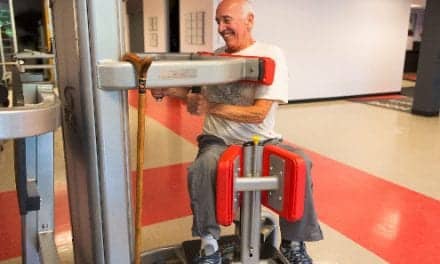Helius Medical Technologies Inc announces that PoNS, its breakthrough technology, is now available in the United States to help patients with multiple sclerosis (MS) with gait deficit improve their walking ability.
The technology, known as the Portable Neuromodulation Stimulator, is available commercially by prescription, for the first time, to patients in the US aged 22 and over.
Helius, which has offered PoNS in Canada since 2019, received marketing authorization last year from the US Food and Drug Administration (FDA) for the use of PoNS for short-term treatment of gait deficit due to mild-to-moderate symptoms of MS. Helius also received a second FDA Breakthrough Designation for PoNS for the treatment of dynamic gait and balance deficits resulting from a stroke and is moving forward with the registrational program to develop PoNS Therapy for marketing authorization with an indication in stroke.
“We believe that we are unlocking the full potential of neuromodulation and neuroplasticity to help MS patients walk more steadily and safely,” says Antonella Favit-Van Pelt, MD, PhD, Helius’s Chief Medical Officer.
MS is a progressively disabling condition with the first symptoms appearing in people between ages 20 and 40.
“Approximately 40 percent of individuals with MS will need walking assistance within 15 years of the onset of the disease. PoNS therapy provides a unique opportunity for these patients to improve gait functionality and mobility,” Favit-Van Pelt adds.
Multiple sclerosis is a disease that impacts the brain and spinal cord that make up the central nervous system and controls everything we do. Difficulty in walking — also known as problems with gait — is among the most common mobility limitations in MS. Most gait problems can be helped to some extent by physical therapy, stretching exercises, the use of appropriate assistive devices and, in some cases, medications for spasticity, fatigue, and walking speed, according to the National Multiple Sclerosis Society.
PoNS is a portable, non-implantable device that delivers mild electrical stimulation to the dorsal surface of the patient’s tongue. The device consists of a controller and a mouthpiece that contains gold-plated electrodes. The controller goes around the neck. The mouthpiece rests on the front of the tongue with the electrodes facing the tongue. When the device is on, the electrodes send mild electrical impulses to the tongue. These impulses stimulate two cranial nerves that have direct connections into the brain through the brainstem. When combining the PoNS device with physical activity, “PoNS Therapy” provides a neuromodulatory effect and sets off a cascade of activity in the brain that result in consolidated neuroplastic changes and therapeutic functional outcomes, improving gait deficit in MS patients.
Additionally, the therapist can connect the controller to a computer and view PoNS usage data via a software developed specifically for the PoNS device. The usage data allows the therapist to obtain important information on the individual’s adherence to their therapy regimen.
Helius is advancing PoNS post-approval research in MS through a recently launched Therapeutic Experience Program (TEP) designed to partner with neurologists and neurorehabilitation therapists at 10 to 12 US centers of excellence, who express an interest in becoming “early adopters” of PoNS Therapy, building their knowledge of PoNS Therapy to advise the broader medical community. Last year, New York University-Langone Health became the first of the Centers of Excellence to announce a TEP partnership.
Helius also launched a collaboration with Dr. Steve Kautz, PhD, Chair, Department of Health Sciences and Research, College of Health Professions, at the Medical University of South Carolina, in an Investigator Initiated Trial to evaluate the effects of PoNS therapy on the recovery of gait and postural stability in chronic stroke survivors.
[Source(s): Helius Medical Technologies Inc, GlobeNewswire]





